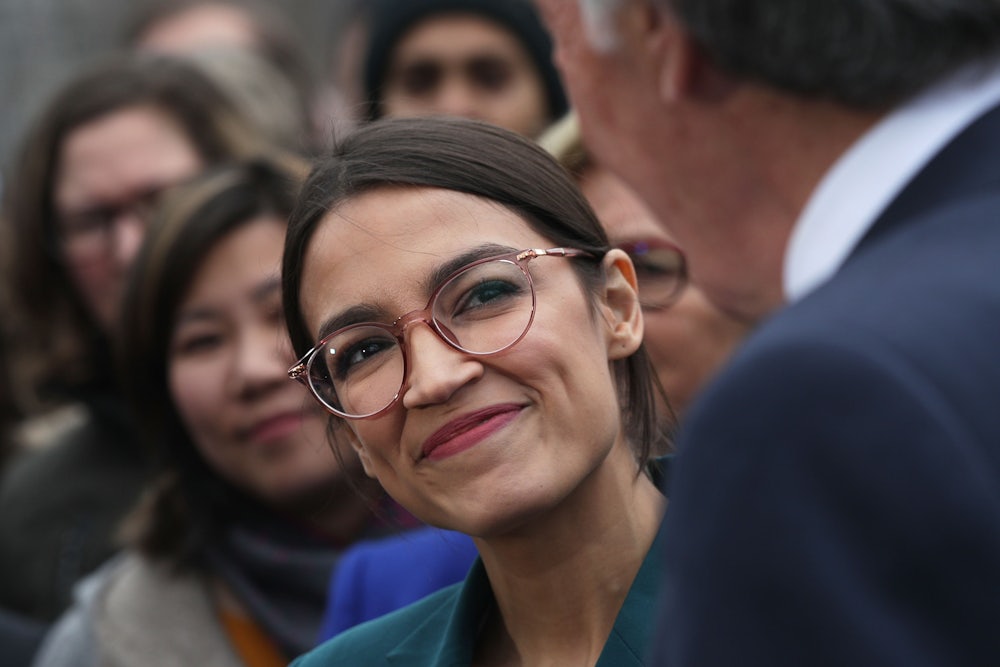How can a democratic political system institute far-reaching changes to a wildly destructive and unequal political economy? Amid mounting signs that climate change is already altering most modes of human enterprise—and life on Earth more broadly—this is far from an academic question.
To begin addressing it, we should look to the modern form of civic-republican inquiry pioneered by Hannah Arendt, who insisted on the symbiotic relationship between political freedom and civic obligation. Citizen involvement in both imagining and implementing a Green New Deal (GND) is fundamental to its viability. As a radical overhaul of our baseline economic and social arrangements, the GND is unlikely to generate much in the way of policy consensus. But for that very reason, citizen participation and agonistic discourse are essential to its legitimacy.
In her work on participatory politics, Arendt explicitly criticizes liberal institutions that have been designed to keep lively democratic energies at a distance. If the GND is foisted on the people—and not to a considerable degree shaped by them—it will be a limited and perhaps self-defeating initiative. (See, as an example of the resistance it may encounter, the gilets jaunes protests in France against an array of top-down carbon and diesel taxes, discussed in Christopher Caldwell’s dispatch this month.)
Much of the GND’s strength lies in the concreteness of its proposals. But the proposals should not be limited to narrow policy targets that engage the wonk class alone. Supporters must also pursue an open and evolving debate across party lines about public goods and the public interest. This will not be easy: Climate change is multifaceted and confronts us as a generational challenge. While the GND describes the problem well, we should be clear that it prescribes a very different future.
For this reason, people must feel they belong to the public in whose name these actions are undertaken. When citizens are part of the conversation and not mere spectators—when they feel their voices are heard, even in small ways—they’re more apt to become part of the solution. In a context of rising inequality, where the forces of capital quietly but relentlessly privatize gain and socialize pain, a focus on the common good is usefully disruptive.
Arendt imagined that once people have a taste of political freedom, they want more of it. She believed we have a chance to “think what we are doing” so long as genuine dialogue is the currency of politics. In practice, such dialogue requires being open to the diverse ways people perform citizenship. How we speak from our relative positions of power in a structurally unequal society may differ; the efforts of some may not conform to rational models of discourse. Such diversity must be turned into a strength for the GND. Only then can the program learn from the mistakes of Emmanuel Macron, say, and other green technocrats, and begin to cultivate a healthy discourse. There is profound hope in this sort of politics, which can’t be scripted by insulated experts who just want more of the same.
Environmental issues have a distinctive capacity to transcend ordinary political divides. When asked, most citizens say they want clean air, water, a stable climate, and a halt to widespread species extinction. The GND is a generative discourse with the potential to overcome political tribalism. As such, it should be open to creative forms of participation and inclusion focused on the common good.
Environmental advocates have long relied on tropes of catastrophe and dark futures to inspire action—often for good reason and to good effect. (For a thoroughgoing exploration of such tropes, see Meehan Crist’s review of two books about climate change.) But perhaps we should employ more optimistic or inspiring rhetorical strategies. If people are respected as equitable contributors in the civic endeavor of shaping climate justice, they will be far more likely to join the project.
Green politics has a productively radical edge, but we often forget that a business-as-usual approach is itself extreme in the face of the threat of climate change. Doing nothing is the most destructively radical path we can take. The 2018 report from the Intergovernmental Panel on Climate Change, for instance, detailed how a seemingly small shift in increasing global temperatures from 1.5 to 2 degrees accelerates heat events, flooding, poverty, and migration, and jump-started popular debate on climate-change mitigation as a result. If we take no action, we’re headed for a global spike in temperatures far above 2 degrees. That alone should force us to think radically about promoting a GND—and make us active participants in its implementation.
